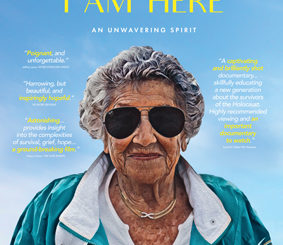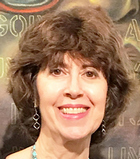World Premiere of “Seven” Brings Vital Voices to New York City
On January 21st, art and activism shared the stage at the 92nd Street Y Unterberg Poetry Center’s premiere of Seven, a documentary theater presentation. The result was riveting, explosive, and inspiring drama.
The brainchild of playwright Carol K. Mack, the concept for the project evolved after Mack sat in on a meeting of the Connecticut Chapter of Vital Voices Global Partnership. The organization is a non-profit that focuses on empowering women around the globe by supporting the advancement of leadership. Mack was viscerally impacted by hearing the struggles and ultimate triumphs of women who resolved, “not to go the route that had been chosen for them.” She envisioned bringing individual stories to the public through the performance medium.
Mack began by assembling a team of playwrights (Paula Cizmar, Catherine Filloux, Gail Kriegel, Carol K. Mack, Ruth Margraff, Anna Deavere Smith, Susan Yankowitz) with award-winning resumes, to join her in conducting conversations with seven women from different parts of the world. Monologues were shaped using verbatim transcripts of interviews. Through workshop development, the structure evolved to an interweaving of the different accounts in a point-counterpoint methodology. Commonality was the thread.
We are introduced to Marina Pisklakova-Parker from Russia, where 14,000 women a year are killed by relationship partners. In a culture where a popular 16th Century maxim, “He beats you, therefore he loves you” sets the tone, Pisklakova-Parker forged ahead to establish the nation’s first domestic violence hotline in 1993. Despite menacing calls from irate husbands, she fielded 700 requests for help in the first year. Pisklakova-Parker is still haunted by the woman who told her, “Before you get to me…I will be dead.”
Annabella De León also knows first-hand the price of being outspoken. “Those who fight corruption, don’t have too many friends,” she observes. Elected to Guatemala’s Congress in 1995, she has consistently championed the rights of women and indigenous people in her homeland, despite the risk.
In Cambodia, the office of Minister of Veterans and Women’s Affairs was always held by a man, until Mu Sochua was appointed to the post in 1998. As a leading exponent for the fight against human trafficking in a nation that is a center of activity, she has publicly addressed the subject of how governmental corruption impacts anti-trafficking endeavors. In 2005, she was a co-nominee for the Nobel Peace Prize.
The family history of Hafsat Abiola, which is intertwined with the politics of Nigeria, reveals how she endured the deaths of both her parents in the fight for democracy. Her personal losses were an impetus, as she moved forward to found an NGO that offers skills-training and leadership programs to young women.
The words of Farida Azizi were captured by Ruth Margraff, who explained how their discussions enabled her to “highlight the poetry of Azizi’s words.” Shaping the oral history of Azizi’s fight against the Taliban hierarchy and the suppression of women in Afghanistan, was described by Margraff as a “transformative experience.” Reflecting upon the relationship, Margraff reveals, “She changed my life.”
The moment in which Inez McCormack connected to the path of activism is underscored in her account. As a young Protestant girl in Northern Ireland who never met a Catholic until her late teens, her insight into the discrimination and inequity that was devouring her country came in a shocking moment. As a witness to the fallout of the Burntollet Bridge Ambush (where Catholic marchers were attacked by Unionists), her life course was altered.
Perhaps the most starkly emotive narrative of the set is Mukhtaran Mai’s story of survival and redemption. She was gang-raped by four men as retribution for an “honor crime” supposedly committed by her twelve year old brother (allegedly he held hands with a girl from a higher-caste tribe). A male tribunal from her village in Pakistan instituted the sentence. After her physical ordeal, she was forced to walk home in ripped clothing that rendered her virtually naked. Defying the tradition of committing suicide to restore honor to her family, she instead challenged the Pakistani legal system to punish her assailants. She was rewarded with a damages payment, which she used to build a school for girls. Susan Yankowitz, who worked with Mukhtaran Mai said, “It’s a very different process to put yourself in service to someone else’s voice.” They met in person three times, in a situation where neither woman spoke the other’s language. Yankowitz elucidated Mukhtaran Mai’s experience emphasizing, “She transcended the fate of women in her society to become a major force…and she did it in isolation and solitude, out of her own suffering.”
After the performance, there was a panel and “talk-back” session. Melanne Verveer, Co-Founder and Chair of Vital Voices, introduced the segment with the comment, “How fitting that this is being premiered on Martin Luther King’s birthday.” The audience got a brief primer on the mission of Vital Voices, which is to invest in women around the world that need support. (Last year they trained 700 women in thirty-five countries.) Since many of these women are both alone and marginalized, the connection helps to enhance their credibility. Several high profile celebrities have become involved, including Sally Fields and Renee Zellweger. Diane Von Furstenberg’s words, “When you invest in women, you change the world” became the basis for the Vital Voices tag line.
For the three of the profiled women who were present, it was a moving experience to see themselves depicted. When asked how she felt, Pisklakova-Parker replied, “First, it was very emotional. These are my sisters.” McCormick commented on “what has been made out of our lives by the actresses and playwrights.” She continued, “Women, as we step forward, should pull someone into our space. We know the loneliness of speaking out.” Azizi added, “We learn from each other. The approaches are different, but we are fighting for the rights of women.”
When the microphone was opened to the public, it was inevitable that the question was posed, “Would having a United States woman president change things?” McCormick was quick to point out that “Every woman in power is not necessarily a sister.” She referenced her experiences with Prime Minister Margaret Thatcher. However, she immediately made clear that Hillary Clinton had stood besides her before she was a person of importance, with an international stature. McCormick asserted, “It’s not just about being a woman, it’s about being human.”
I was able to speak with McCormick after the reading, albeit briefly. She gave me a clear and concise maxim. “Saying no to what is wrong, creates hope of what is right.” From the women who challenged the status quo of the power structure and the interpreters of their words, I felt reaffirmed in the belief that one person could indeed make a difference.




